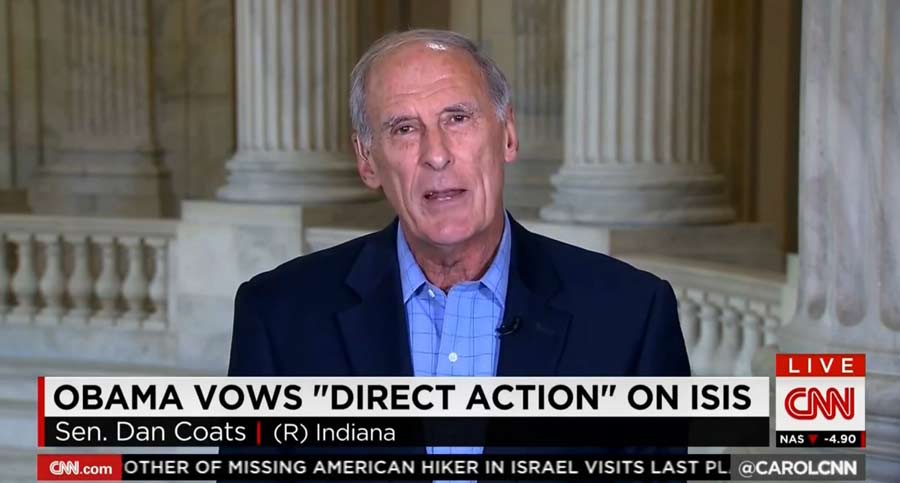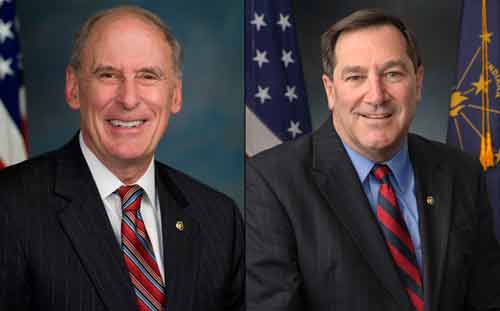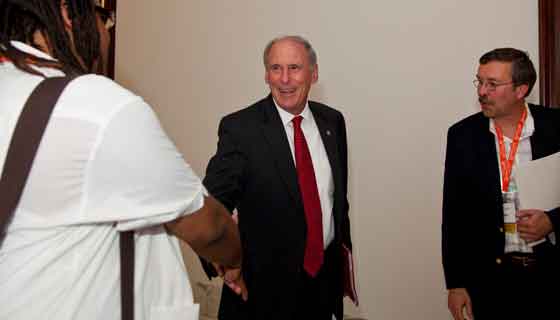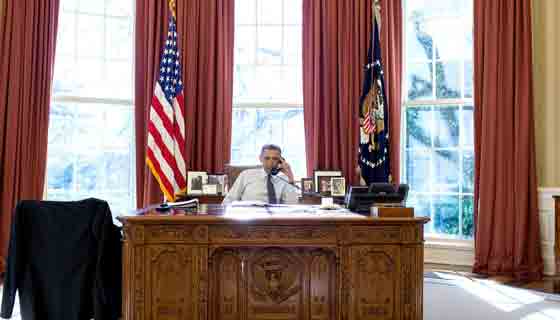Senator Dan Coats (R-IN) appeared on CNN this morning with former Congressman and 9/11 Committee Co-Chairman Lee Hamilton to discuss ISIS and how the United States should respond. Indiana’s senior senator suggested that the US should look at its visa waiver program to deal with the re-entry of Americans from Syria and that the military should use additional resources to attack ISIS.
“I think we have to look very carefully at our visa waiver program in terms of how it is currently constructed and define a way in which we can at least address those that we know and those that we suspect might [be members of ISIS] — and they need to be treated in a different way in terms of entry to the United States, more security, more testing and checking at the entry points to protect yourselves. Britain and London have the same, France, Germany,” Coats said in the interview.
CNN anchor Carol Costello then asked Coats if Americans who return from Syria should undergo extra security measures.
“That’s what I’m thinking. If we can identify those, and I think we have to be aware of the ISIS threat and take it seriously, that they’re bringing it to our shores. We need to be aware of that and put the protections in. Visa waiver is a way to avoid a lot of that check in security for people who come from certain countries or hold, um, citizenship in these countries.”
“I don’t know the exact answer to this. It expedites travel, of course, but in another way we now face a significant threat here in the United States and we have to find a way to separate out that examination before we allow people back into the United States that we suspect might have a connection to ISIS.”
Coats is referring to a State Department program that allows citizens from certain designated countries to enter the US without a visa. An American citizen traveling from one of these countries would not need a passport.
There are currently thirty-eight countries — mostly European — that are part of the visa waiver program. The largest non-European countries include wealthy US allies such as Chile, Japan, Singapore, South Korea, and Taiwan. No Middle Eastern countries are part of the visa waiver program. The Homeland Security Department still checks individuals traveling on flights to make sure that they are eligible to travel without a visa restriction.
It’s not clear what altering the visa waiver program would accomplish in removing a potential threat from ISIS — which security experts say poses little threat to the US mainland. American citizens can re-enter the country with a simple passport. The ability of the State Department to assess the intent of a visa applicant is limited to the information available from the home country, such as criminal history and potentially foreign intelligence services on any connections to ISIS. Experts say that these should already be flagged through the Homeland Security Department’s security checks.
Visitors using the visa waiver program are only allowed to stay in the United States for tourism or business. They must return to their home country within 90 days.
Earlier this year, a bipartisan group of Congressmen worked to expand the visa waiver program.
“Each overseas visitor spends an average of nearly $4,500 per trip to the U.S., adding nearly $130 billion to the economy in 2012. One American job is created for every 33 international visitors—meaning over one million domestic jobs were supported by inbound travel in 2012,” Reps. Joe Heck (R-NV) and Mike Quigley (D-IL) said.
“[The Visa Waiver Program] expansion itself has a proven, immediate and marked economic benefit; in the year after the program was expanded to South Korea, spending in the U.S. by visitors from that affluent country more than tripled, according to a forthcoming study from the U.S. Travel Association,” they continued.
Coats was non-committal when asked if there should be “boots on the ground”, saying that “there are a number of things that have to be done” without mentioning any specifics. He instead said that the executive branch should come up with a plan, calling ISIS a “dire, direct threat” to the United States.
“The president needs the support of the American people if we’re going to be successful with this. And I would urge the White House and the president to do this as quickly as possible.”
Coats says that “we need to coordinate [with our allies] and we need to have Congress rise above the political — even though it’s close to an election — and do the right thing here.”
Others remain skeptical of a military response, citing the nearly fifteen year war in Afghanistan, nearly ten year commitment in Iraq, and other US conflicts in the Middle East that have yielded few tangible positive results. Stephen Walt, a professor of international relations at Harvard University and a security policy expert, doubts that military options would do much long-term good.
“There’s no question that ISIS is a group of very bad guys, but it is primarily a threat to the people in the areas they control and not a direct threat to the United States,” Walt says. “It’s a primarily Sunni group, which will not be able to expand into non-Sunni areas and the potential terrorist threat there has been greatly exaggerated. There are lots of groups around the world who would like to be able to go after the United States. Most of them fail. And in fact the way to deal with it is with intelligence and counter-terrorism here at home.”
“The United States should remember that we’ve spent the last fifteen years trying to use military power, including military assistance, to try to organize the politics of this region. We have a failed miserably. We have a failed state in Iraq; we have a failed state in Libya. And we spent $25 billion dollars training the Iraqi army, which then subseqnetly turned and ran when confronted by ISIS, so I think to believe that we can go in again with air power primarily and some special forces and eliminate this problem is fanciful. This is ultimately going to be a problem for locals to deal with, not for the United States to try to deal with. And because it is not a threat to core American security interests, it’s one we should stay away from.”
But what if the US does nothing now? Won’t ISIS wreak havoc throughout the region and potentially strike in the United States?
“We have to recognize that this is not the Third Reich. This is not an incredibly powerful movement. It has maybe 20,000 fighters, no air force, no navy; basically lightly armed infantry that’s been able to expand in stateless areas — areas that are stateless in part because we destroyed the states that were governing there. The idea that we are going to be able to go in again with a few thousand special forces and reorganize the politics of that region I think has been tried and found wanting in the past, and it would be found wanting again if we tried it again.”
Watch the full debate about how the US should deal with ISIS between Professor Walt and retired Army Col. Peter Mansoor below:
————











